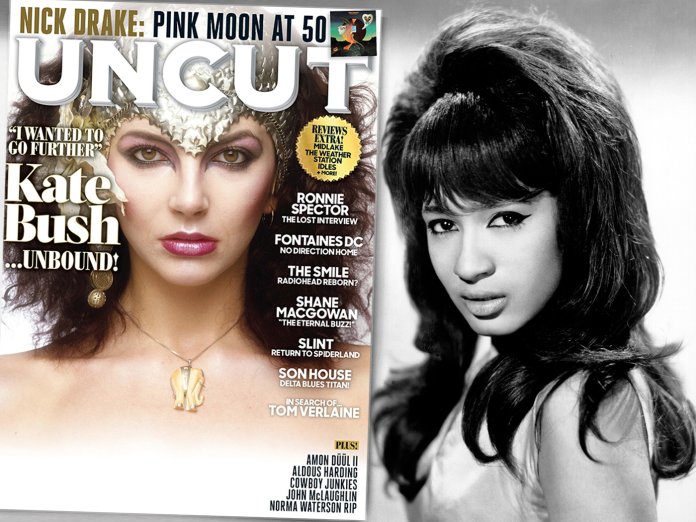For all the grandiose backing tracks assembled in the Gold Star Studios between 1962 and 1966, there was nothing to match the overwhelming into-the-red chorus of love and reverence that met the passing of Ronnie Spector on January 12, 2022. Who else could unite the full spectrum of the pop pantheon, from the heavenly Brian Wilson to the infernal Keith Richards, from Ariana to Zendaya, not to mention Patti Smith, Bruce Springsteen, Billy Joel, Elton John, Joan Jett and Morrissey?
What were we mourning? On the face of it, it seems a slender achievement: a handful of singles across 1963-66, only one of which went Top 10. A solitary album, which barely scraped into the Top 100. A version of “Frosty The Snowman” on a brazenly shameless Christmas compilation. And a series of doggedly hopeful comebacks from the ’70s onwards that never really found an audience.
And yet – let’s put it plainly – if you measure an artist by the strength and depth of the response they provoke, then Ronnie Spector is one of the greatest pop artists of the last 60 years. In fact, it’s a tribute to the era that Ronnie co-founded and defined that it meant a mixed race teenage girl from Washington Heights could make a reasonable claim to immortality armed with not much more than industrial quantities of Cleopatra eyeliner and Aquanet SuperHold, a scrappy, wavering, heartfelt voice born out of a schoolgirl infatuation with Frankie Lymon, a sensational smoulder and shimmy, and a certain indomitable East Harlem defiance.
Pop songs are spells. Most work their magic for a season, borne aloft by passing currents of adolescent spirit and commercial whim and, if they’re lucky, they retain some faded charm for those they once seduced. Seventy years on, so many of the greatest hits of early rock’n’roll now sound antique, like something from the days of horse-drawn carriages, gramophones and daguerreotypes.
But mysteriously, through some uncanny force in their framing and performance, a few slip free of their time. As Ezra Pound almost put it: “A great pop song is news that stays news”. And no pop song has stayed new over six decades as successfully as “Be My Baby”, first released roaring into the summer of 1963, and roaming ever since, like some inexhaustible tropical cyclone – Hurricane Ronnie – across the airwaves, screens and senses of the world.



